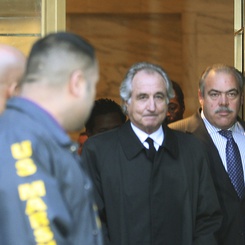With Anne Jeny and Philippe Lorino and Marie-Léandre Gomez
An ESSEC faculty veteran with more than 20 years at the school, Philippe Lorino – Distinguished Professor of Accounting & Management Control – is one of the leading experts of management and organizational theory based on the study of activity, in France and around the world. Over the years he has worked with firms including EDF, Gaz de France, France Télécom, Renault, Arcelor, Hydro-Québec, Jet Services, Banque Caixa, SAT-Sagem, SNCF, and MMA, and is also a member of the permanent Group of Experts of the French National Authority for Nuclear Safety.
An Engineering graduate from the schools of École Nationale Supérieure des Mines and École Polytechnique in Paris and Doctor of Management Science, Professor Lorino’s research has been published in peer-reviewed journals including Organization Studie, Scandinavian Journal of Managements and Finance, Contrôle, Stratégie. Books like Contrôle de Gestion et Pilotage de l'entreprise, which he co-authored with Professors René Demeestère and Nicolas Mottis, have become trusted tools in the teaching of Management Control.
ESSEC celebrated his achievements on November 20th, 2013 when he was awarded the title Distinguished Professor in recognition of his research and international renown as an expert.
“Collective activities and sense-making have been the central themes of Philippe’s academic career these past 20 years,” says Professor Anne Jeny-Cazavan, head of the Accounting & Management Control Department. “He has built a reputation as an expert throughout a long and coherent intellectual and professional path, in France and abroad. Working with ministries, corporations and other organizations, he’s always been a firm believer that all roads lead to management control and organization theory.”
“On behalf of the Accounting & Management control department, we all feel honored by this recognition of Philippe Lorino’s. He has guided and mentored the academic life of many professors within our department. We owe him a lot, and feel a debt of gratitude towards him.”
Inspired by Philosophers like Charles Sanders Peirce and John Dewey as well as organizational scientists like Herbert Simon and Karl Weick, Professor Lorino’s career has also been shaped by an eclectic appreciation of the arts and a colorful childhood in North Africa.
“Behind the appearance of a solemn professor, many are surprised to learn that expertise is grounded by an appreciation of literature, jazz and art,” adds his Accounting & Management Control Department colleague Professor Marie-Léandre Gomez. “He’s named Umberto Eco, Jorge Luis Borges, Julio Cortazar, Antonio Machado, Italo Calvino, Leon Tolstoï and Arthur Conan Doyle as some of his muses who act as ‘mediating instruments’ between his thought and the world and reveal the heart of his theoretical thinking.”In teaching, research is never far from his mind, and he has built the management control core course as a methodological process based on the logics of inquiry. The Lectio Magistralis he delivered on November 20th – The Actional Paradigm of Organization as a Dialogical Inquiry: Peeling the Onion of Sense and Playing the Ping Pong of Dialogue - is both a major theme in current management research and the outcome of this life-long intellectual path.
Human Activity as the Core of Social Organizations
Should we trust expertise above experience? This question sums up a debate which has taken place for centuries between the actional view of organizations as systems of activity and the informational view of organizations as decision-making systems.
“In many organizations, people tend to trust formal representations and quantitative measurements rather than human experience – we call this the decision-making model of organizations,” explains Professor Philippe Lorino. “The rise of this view often means the revival of Taylorism, the standardization of tasks and the substitutability of actors that became popular during the industrial revolution.”
“Although this vision of management has been criticized, especially in the 1980s, the development of powerful integrated management information systems since the 1990s has often imposed the "dream" - or nightmare - of omnipotent control.”
As professor Lorino explains, the decision-making - or infomration-processing - paradigm imposes severe restrictions on organizational learning. Organizations tend to be less innovative and less able to manage risk because employees can easily feel disengaged or their experience is ignored. Thus collective activity, neglected by theories and managerial practices, takes its revenge. Learning by doing tends to vanish in supposedly well managed organizations.
There is a universal complaint, from China to France, about the deterioration of work quality and quality of life at work. The loss of risk control leads to financial, technological or social disasters in the supposedly best controlled organizations. “On the other hand,” he continues, “activity-based companies have leaders who don’t always need to be right. And when leaders can admit when they’re wrong, they’re more likely to listen to their team who therefore feel they have a freedom of expression and a capacity to criticize. When employees can express opinions, even even when they are contrary to the dominant corporate culture or to the results of sophisticated information processing, it also becomes much easier to tackle risk – risk management is always rooted in the practical experience and awareness of actors.”
Activity-based companies engage in the intensive practice of experimentation and understand that failure is part of success. If you try new things, there should be a certain percentage of failures because failures are a normal part of social and human experience. “Of course, this doesn’t mean that we don’t need experts,” he adds. “However, the advice of experts, formal models and numbers aren’t automatic management. They need to be seen as useful tools that can be applied to collective activity, no more, no less.”
Bringing activity back in, through the concept of "dialogical inquiry", he concludes, is a key step for management studies, since management techniques and concepts develop in radically distinct directions whether they are considered as decision-support mimetic representations of "the" one best way or more modestly as sense-making and heuristic mediations of situated inquiries. This alternative entails many key theoretical and managerial issues.
Further Reading:
"The Experience of Time in the Inter-Organizing Inquiry: A Present Thickened By Dialog and Situations", published in Scandinavian Journal of Management
"From the Analysis of Verbal Data to the Analysis of Organizations: Organizing as a Dialogical Process" , published in Integrative Psychological and Behavioral Science
"L'activité collective, processus organisant : un processus discursif fondé sur le langage pragmatiste des habitudes", published in Activités









